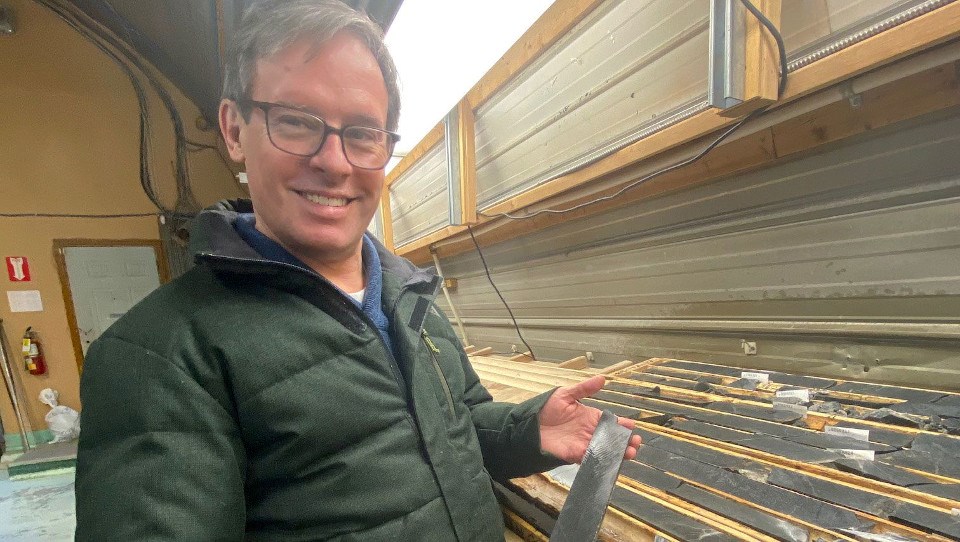Elon Musk's plea for mining companies to "mine more nickel" had an apparent effect on Canada Nickel Company.
The Toronto-based exploration company is pitching its future mine project, north of Timmins, as a zero-emissions operation.
The Silicon Valley tech entrepreneur and electric vehicle maker promised a whopper of a Tesla contract for those producers that mine nickel "efficiently and in an environmentally sensitive way" as lithium-ion battery demand starts to pick up.
On that note, Canada Nickel announced July 27 that it's created a research and development subsidiary, NetZero Metals, with the aim of incorporating various technologies in the mining, milling and processing stages that will produce zero-carbon nickel, cobalt and iron products.
Canada Nickel's flagship project is its Crawford nickel-cobalt sulphide project, 40 kilometres north of the city.
The junior miner revealed in early March it was sitting on the world's 12th largest nickel sulphide resource with only a fraction of the 4,900-hectare property explored. This past spring, exploration also revealed a zone of platinum group metals.
A preliminary economic assessment (PEA) of the promising metals property was launched in June. It's scheduled for completion by year's end. A more detailed feasibility study will start in 2021.
Want to read more stories about business in the North? Subscribe to our newsletter.
Company chair and CEO Mark Selby, a respected global nickel analyst, was pitching the green angle of his project during a recent interview with Northern Ontario Business, in assessing near-term nickel markets and how national governments intend to stimulate and reshape their respective economies with a lower carbon footprint and electric vehicle incentives.
Prime Minister Justin Trudeau was on that track at the outset of the COVID-19 outbreak in Canada in announcing at the annual convention of the Prospectors & Developers Association of Canada in March that his government would incentivize companies by providing a 100 per cent writeoff of the purchase cost of zero-emission vehicles in sectors like mining, transportation and the agriculture.
By weight, nickel is the primary metal used in electric vehicle batteries. In outlining their NetZero approach, the company points out that the Timmins area has its own distinct infrastructure and geological advantages.
There's abundant hydroelectric generating capacity in the area, which will be needed in the milling phase.
And the serpentine host rock, which comprises more than 90 per cent of Crawford's mineral resource, actually arsorbs carbon dioxide (CO2) when exposed to air through a naturally occurring process of spontaneous mineral carbonation. Thus, it would offset any CO2 emissions from the project.
The amount and rate absorbed from the materials mined at Crawford will be analyzed through upcoming studies.
On the mining front, Canada Nickel is looking at electrically powered vehicles, such as electric rope shovels and trolley trucks, rather than a diesel-fueled fleet.
From the processing end, to remove the all the impurities to produce nickel-cobalt concentrates, the company said there are available off-the-shelf pyrometallurgical technologies, such as electric arc furnaces, where the offgases can be captured and channelled into the waste rock and tailings from the Crawford project.
The NetZero approach will be incorporated into the findings for the company's upcoming PEA.
Canada Nickel said it's also exploring magnetite concentrate processing and the potential to make iron products using direct reduced iron (DRI) processes or reduction in electric arc furnaces.
The company isn't revealing where a processor would be located, except "somewhere in the region."
Whether that would involve building a new facility or use existing, underutilized processing capacity, the company said it depends on what technology they eventually end up choosing.
To help finance this, Canada Nickel said it expects to bring in a technology partner from the electric vehicle supply chain that would be involved in the processing side and would sign an offtake agreement "without having to invest in the mine itself."
This approach, the company said, provides "maximum flexibility to get the best partner to process nickel-cobalt and iron."
“The electric vehicle industry and many other consumer sectors needs zero-carbon metal this decade – not in a nebulous 2050 timeframe contemplated by many other resource companies,” said Selby in a statement.
“As a result of the unique advantages of the Timmins region with its close proximity to zero-carbon hydroelectricity and our Crawford Nickel-Cobalt Sulphide project, comprised largely of serpentine rock that naturally absorbs CO2 when exposed to air, Canada Nickel has the potential to develop zero-carbon products that our customers are expecting from the mining sector.
"With nickel as a preferred metal to power the clean-energy revolution, our commitment to net zero-carbon production is the right step to take for the environment, for consumers, and for our investors.”
Canada Nickel said it has applied for trademarks for the terms NetZero NickelTM, NetZero CobaltTM, and NetZero IronTM in U.S., Canada, and other jurisdictions related to zero-carbon production of nickel, cobalt, and iron products.




